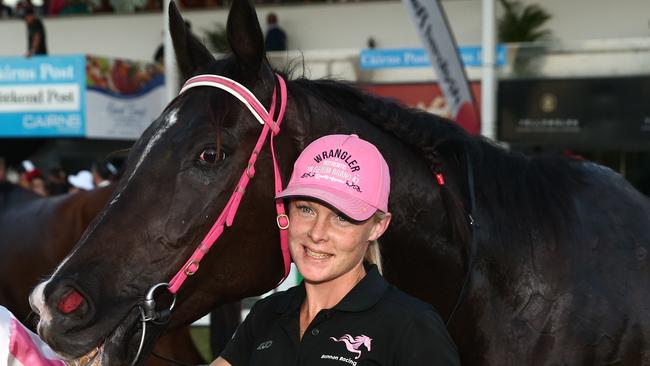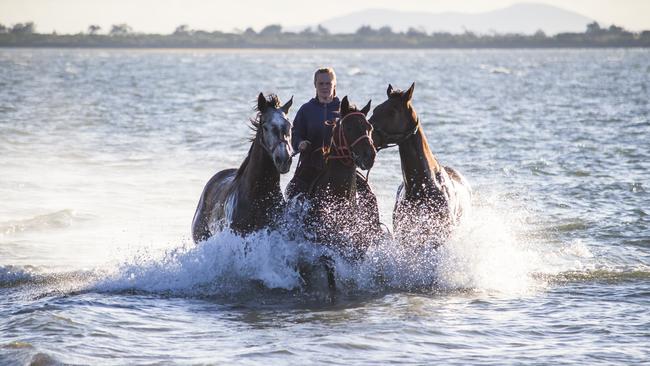Revealed: Why banned substances won’t be made public in jockey Trinity Bannon’s case or others like it
Mackay jockey Trinity Bannon was caught with banned substances in her system at a Rockhampton race meeting and the integrity commission has explained the policy change which means those substances won’t be publicly revealed.

Rockhampton
Don't miss out on the headlines from Rockhampton. Followed categories will be added to My News.
Queensland’s racing integrity body has explained a policy change which means jockeys caught with banned substances in their system won’t have those substances publicly revealed.
Last week leading Mackay trainer and jockey Trinity Bannon failed in a bid to get a nine-month ban reduced or overturned on appeal.
In July, Queensland Racing Integrity Commission stewards hit Bannon with the disqualification after she pleaded guilty to riding at the Rockhampton race meeting on April 29 with banned substances in her system.
What those banned substances were, were not disclosed in the QRIC stewards report on the Bannon inquiry.
When asked, Acting Queensland Racing Integrity Commissioner Paul Brown revealed why.
“Since October last year the Queensland Racing Integrity Commission has not identified or published the prohibited substances found in a participant’s system as confirmed by analysis,” he said.
“The Commission considers that the information relating to the type of prohibited substances is relative to a steward’s inquiry, however it is not necessary to identify the substance in published steward’s reports.”

Queensland Jockeys Association president Glen Prentice said he was supportive of the policy change.
“Definitely in favour of not publicising it,” Mr Prentice said.
“I mean some people go through a lot of problems and if it’s just an innocent mistake too, like diet pills.
“You can test positive to taking Panadeine Forte.
“We had a jockey recently who was stood down, got hurt in the barrier and was recommended to go to the doctor.
“And the doctor prescribed him that (Panadeine Forte) and he felt okay and went to the trials and tested positive, so it can be an innocent mistake.”
Mr Prentice said the Queensland Jockeys Association did not have an involvement in the QRIC policy change.
“From what I remember at the time, other states were basically adopting that policy, you know for the person’s welfare and things like that,” he said.
QRIC formerly published the details of banned substances including drugs and what type.
Bannon is an accomplished trainer who, as a jockey, holds a place in Australian racing history.
On January 19, 2010, at Rockhampton’s Callaghan Park racecourse, she was one of four female jockeys who rode the winners of the entire seven-race card.
Female jockeys had, in preceding years, ridden the card at country race meetings but this was the first time it had occurred at an Australian TAB meeting.
On that history-making day, apprentice rider Alisha Taylor had three winners (County Sheriff, Fire Hazzard, Malicious Gal), apprentice Carly Mae-Pye rode two winners (Ima Cool Dude, Run The Rapids) and one win apiece went to Trinity Bannon (In Bold Fashion) and Shayla Evans (Hezaburraboy).



